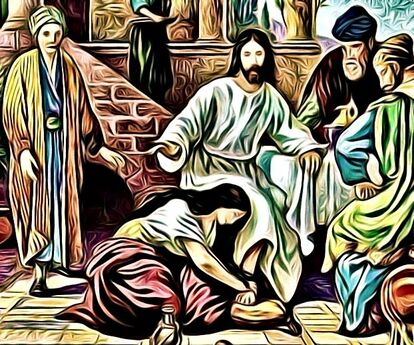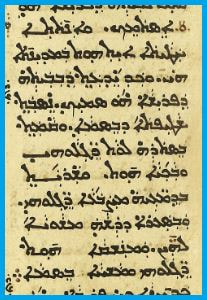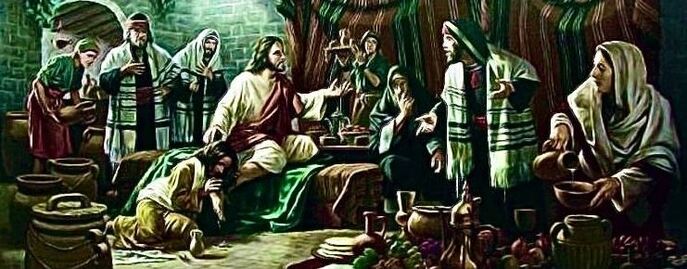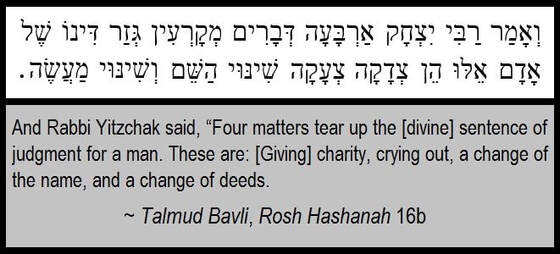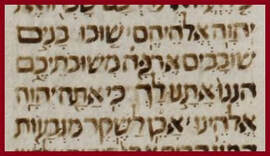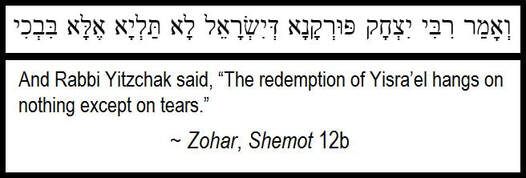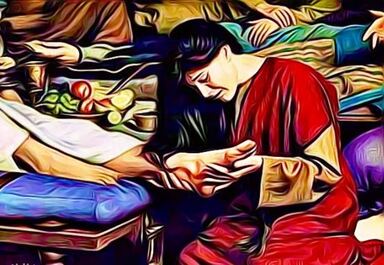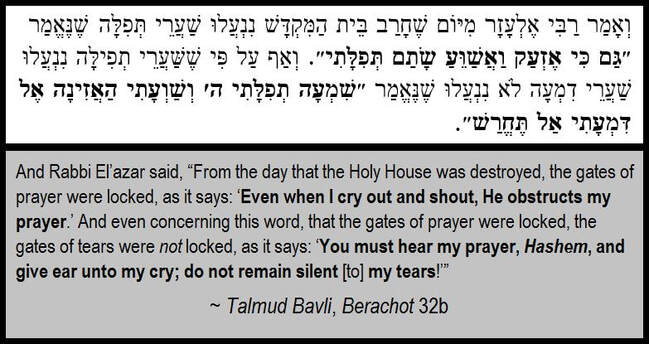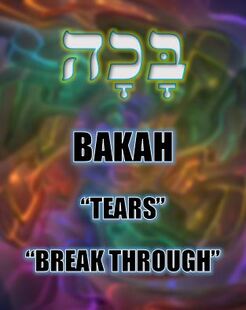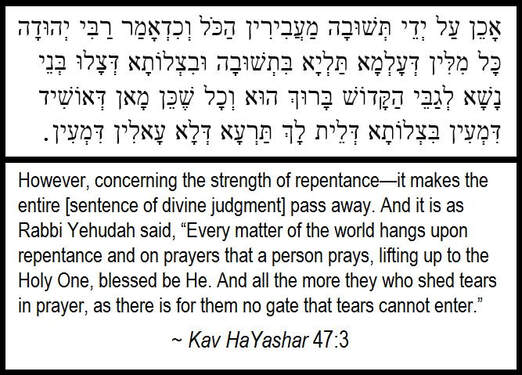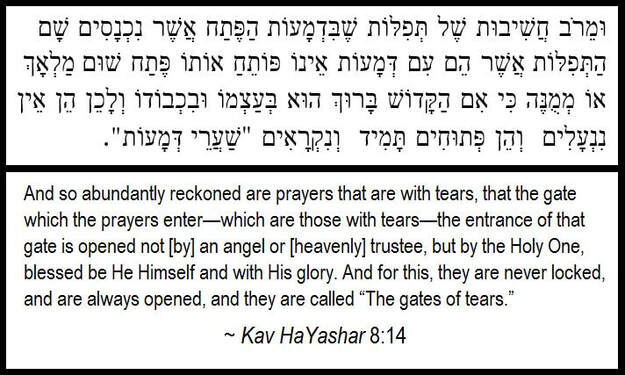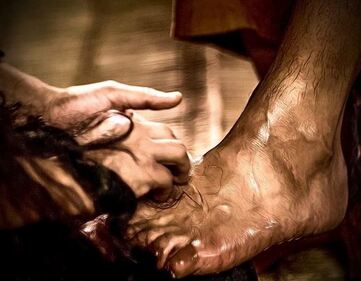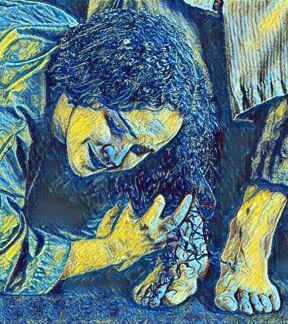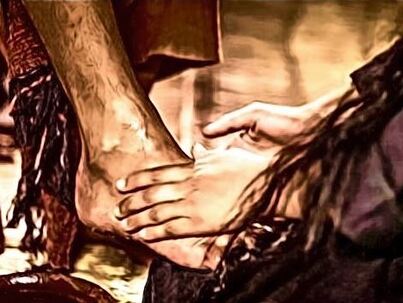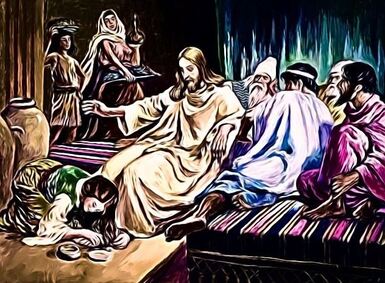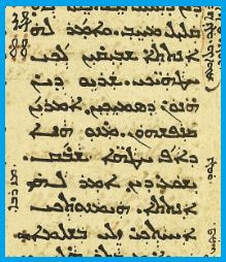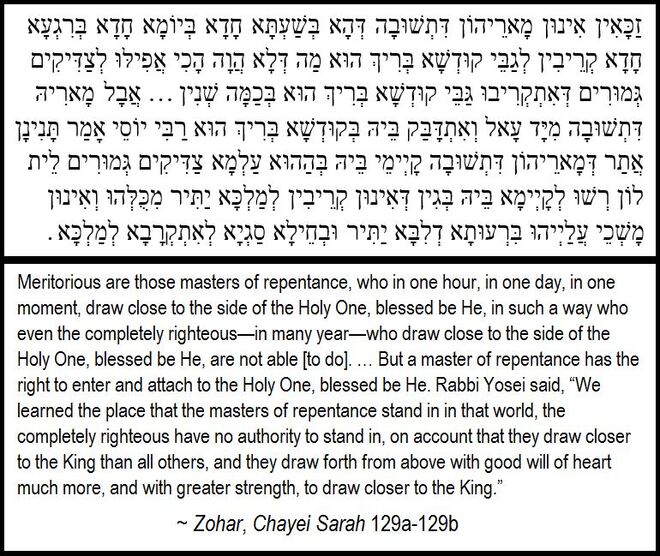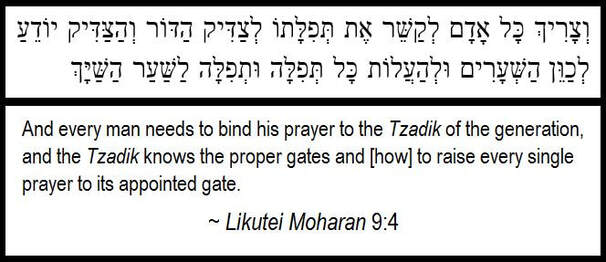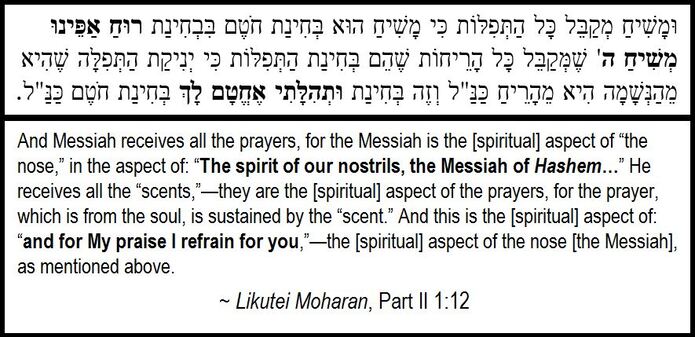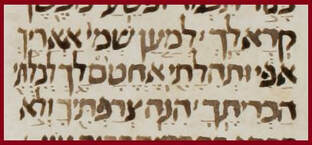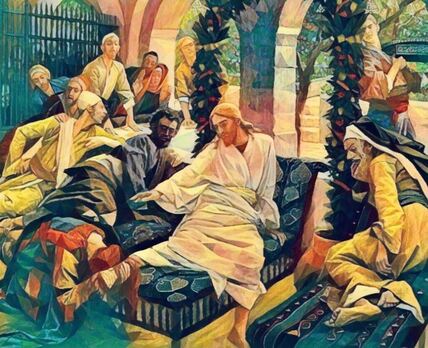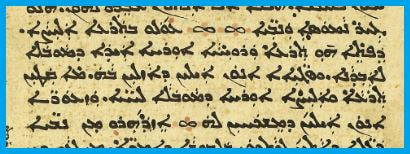THE GATE OF TEARS
by Jeremy Chance Springfield
1/11/2023
This study is also available in audio.
The Gospels are profuse with particularly meaningful moments in the life of the Messiah. Beyond the incredible teachings and vivifying ministry to the hurt and hopeless, the holy texts record incidents of intimacy imparting portraits of importance. One of the most amazing among them is that of the woman who weeps upon Yeshua’s feet and dries them with her hair.
The account, related in Luke 7:36-50, is not only curious in its chronicle of the occasion, but also for its odd events: the woman’s behavior is glaringly irregular. The text highlights her unlikely actions, and yet the underlying factors for her intriguing interaction with Yeshua are also clarified: she was grateful for the overflowing mercy offered by the person of Messiah.
What is not explained are the details of why she washed His feet with her tears and dried them with her hair. Those acts appear to be entirely eccentric. While weeping over her gratitude towards Yeshua would be sensible, to use those tears for washing His feet, and to combine that act with her hair in such an intimate fashion is admittedly bizarre.
The account, related in Luke 7:36-50, is not only curious in its chronicle of the occasion, but also for its odd events: the woman’s behavior is glaringly irregular. The text highlights her unlikely actions, and yet the underlying factors for her intriguing interaction with Yeshua are also clarified: she was grateful for the overflowing mercy offered by the person of Messiah.
What is not explained are the details of why she washed His feet with her tears and dried them with her hair. Those acts appear to be entirely eccentric. While weeping over her gratitude towards Yeshua would be sensible, to use those tears for washing His feet, and to combine that act with her hair in such an intimate fashion is admittedly bizarre.
Thankfully, a meaningful foundation does exist for why she acted in the manner she did. As strange as it may seem, there are profound spiritual dimensions to what the woman was doing. Whether she realized them or not makes no difference: her response to the person of Messiah in her midst was fueled by a holy desire to show her true heart to the one who possessed the ability to connect to the compassion of the Creator Himself.
The account is full of beautiful wordplays and meanings that are best appreciated by returning to the Aramaic text of the Peshitta New Testament. For the purposes of this study, the focus will only be on the brief passage recording her interaction with Yeshua, as read in Luke 7:37-38.
The account is full of beautiful wordplays and meanings that are best appreciated by returning to the Aramaic text of the Peshitta New Testament. For the purposes of this study, the focus will only be on the brief passage recording her interaction with Yeshua, as read in Luke 7:37-38.
|
37 And a woman, a sinner, was in that city, and when she knew that in the house of the Prisha he reclined, she took a tapered container of fragrance,
38 and she stood behind him, against his feet, and was weeping, and began with her tears to wet his feet, and with the hair of her head to wipe them, and she was kissing his feet, and anointing [with] fragrance. |
The text blatantly judges her as a “sinner.” The Aramaic word behind the English is the term CHATATA, and while being the feminine version of that concept, it can also be used in an entirely neutral sense of someone who is “delicate.” The unmentioned aspect of being a “sinner” is that the person is often in a very fragile state—be it emotional or mental—stemming from the chasm existing between that person and the Holy One. The sinner needs tempering by the love of the Creator to become a person of strength in body and mind, restored in spirit to withstand the onslaught of sin that otherwise sends them reeling.
This woman’s spiritual state was frangible, and her actions at the feet of Yeshua show she was in immediate need of divine acceptance. What she did at Messiah’s feet is an incredible testimony to a change she was experiencing in her heart.
Mention should be made first concerning her kisses, as they can be immediately recognized and appreciated based on what is preserved in historical records. The act of kissing the foot in the Jewish culture is intended as a show of high gratitude or indebtedness towards another, as evidenced in the Talmud Bavli, tractates Sanhedrin 27b, Ketuvot 49b, and Bava Batra 16a (and in the Talmud Yerushalmi, tractates Kiddushin 1:7 and Peah 1:1). In each text is an incident chronicled that establishes the intent of gratitude in such an expression. This is a rather straightforward explanation and sets the stage for helping us to understand the sinful woman’s mindset as she acted out her startling deeds.
Mention should be made first concerning her kisses, as they can be immediately recognized and appreciated based on what is preserved in historical records. The act of kissing the foot in the Jewish culture is intended as a show of high gratitude or indebtedness towards another, as evidenced in the Talmud Bavli, tractates Sanhedrin 27b, Ketuvot 49b, and Bava Batra 16a (and in the Talmud Yerushalmi, tractates Kiddushin 1:7 and Peah 1:1). In each text is an incident chronicled that establishes the intent of gratitude in such an expression. This is a rather straightforward explanation and sets the stage for helping us to understand the sinful woman’s mindset as she acted out her startling deeds.
The woman’s tears are a testimony to the remorse harbored in her heart. Significant focus can be placed upon this aspect of her actions, for they are so very meaningful. Without a single word uttered, the truth of her situation was yet loud in the room while she wept and wiped Messiah’s feet with her long locks.
Scripture speaks to this situation in Psalm 126:5-6.
Scripture speaks to this situation in Psalm 126:5-6.
A passage often quoted to bring comfort, it also holds value in what the Hebrew is implying beyond the surface of the text. A wordplay exists in the phrase “his bundles” – it is the word ALUMMOTAV, which stems from the term ALAM, meaning also “silence.” The concept is that the sowing occurred in silent tears, and at the harvest those sown “silences” shall be gathered with joyous "shouts."
The Word claims that sincere weeping affects a future transformation. That is what we see happening in Luke 7:37-38. The sinful woman’s tears show a work is being done in her that is real. The Creator does not ignore those who are truly fragile and in need of His compassion. He is not oblivious to us in such heart-wrenching moments. Elsewhere in Psalms, His awareness of our plight is mentioned in a beautifully poetic manner, recorded in 56:8.
This passage highlights the detail that man’s Creator is not unaware of our brokenness in response to the difficulties of life. Additionally, the passage in its Hebrew reading holds important wordplays worth noting here. The term for “My wandering” is NODEE, and the term for “in Your bottle” is B’NODEKA. Although the terms come from two separate root words: NOD (spelled Nun-Vav-Dalet) and NOD (spelled Nun-Alef-Dalet), respectively, those roots sound identical, and so their conjugation is phonetically linked. Also, the word NOD as “wandering” ultimately has as its primal root meaning the notion of “showing grief.”
Similarly, the second wordplay found here is in the term SAFARTAH “You count,” as well as B’SIFRATEKA “in Your scroll.” In this case the terms are linked in their root, with the concept of “counting” being that which is recorded in a “scroll.”
The wordplays in all this serve to show that our tears, our “wandering / grief” in life, are never forgotten or overlooked by our Maker. He knows each and every one. This is even emphasized in the Hebrew with the usage of DIM’ATI “my tear,” which is in the singular. While that may sound odd, the suggestion is that a separate bottle is reserved for each tear shed—which is to poetically say that He is aware of every single one and they matter to Him.
The wordplays in all this serve to show that our tears, our “wandering / grief” in life, are never forgotten or overlooked by our Maker. He knows each and every one. This is even emphasized in the Hebrew with the usage of DIM’ATI “my tear,” which is in the singular. While that may sound odd, the suggestion is that a separate bottle is reserved for each tear shed—which is to poetically say that He is aware of every single one and they matter to Him.
Of curious note in this is that the woman in Luke 7 was weeping, and she had with her a container of fragrance—essentially a bottle!
The Jewish text of the Talmud Bavli, Rosh Hashanah 16b discusses what can change someone’s impending judgment.
The Jewish text of the Talmud Bavli, Rosh Hashanah 16b discusses what can change someone’s impending judgment.
The Talmud is speaking about the power of repentance. Sorrow over one’s actions means true pain felt for the pain that was caused, and inevitably, a change in the person’s future behavior. Crying is listed as one of the acts that reveals true repentance exists. Rabbi Yitzchak’s words were built upon a former statement he made that is recorded in the previous page of the Talmud.
Weeping is viewed as being able to change a divine decree—whether before it is executed or even after it has been delivered. This idea stresses how the Creator is so often ready to recognize and support a sinner who repents.
This sentiment is expressed well in the words of Jeremiah 3:22.
This sentiment is expressed well in the words of Jeremiah 3:22.
Our Father openly declares His willingness to accept us again despite our former hostility to His heart, and even more than acceptance towards us, He proclaims that He will heal the damage our distancing created!
This restoration by repentance is astonishingly stated in the text of the Zohar, Shemot 12b.
This restoration by repentance is astonishingly stated in the text of the Zohar, Shemot 12b.
Again, the words of Rabbi Yitzchak are brought forth to assert the power of tears as evidence of the act of repentance. The long-awaited redemption is dependent on tears—on the sincere remorse and pain for all that has brought on the exile of the Creator’s Presence from this earth.
This power of tears is also mentioned and elaborated upon in an important passage of the Talmud, in tractate Berachot 32b.
The assertion here is that since the destruction of the Temple, the supreme ease of spiritual communication that existed prior to that horrific tragedy was severely hampered. Rabbi El’azar presents the concept with the idiom of “gates of prayer,” that is, supernal channels leading directly to the ears of the Holy One. These, he claims, were locked at the Temple's destruction.
This spiritual obstruction is understood based on the wording found in Lamentations 3:8, which the Talmud initially quotes. Written by the prophet Jeremiah, Lamentations records his response to the razing of the Temple by Babylon. Despite even the prophet’s unique placement as the mouthpiece of the Creator, he also suffered from a spiritual constriction in his own prayers, noting that the Holy One had done something to obstruct prayer from being answered. Whatever occurred in the heavenlies, the view of the ancient rabbis who experienced that transition from Temple to nothing was that a very real loss could be felt, severely restricting the flow of prayer to the Creator. Prior to the two destructions of the Temple, prayer must have been a really different experience than it is now.
This spiritual obstruction is understood based on the wording found in Lamentations 3:8, which the Talmud initially quotes. Written by the prophet Jeremiah, Lamentations records his response to the razing of the Temple by Babylon. Despite even the prophet’s unique placement as the mouthpiece of the Creator, he also suffered from a spiritual constriction in his own prayers, noting that the Holy One had done something to obstruct prayer from being answered. Whatever occurred in the heavenlies, the view of the ancient rabbis who experienced that transition from Temple to nothing was that a very real loss could be felt, severely restricting the flow of prayer to the Creator. Prior to the two destructions of the Temple, prayer must have been a really different experience than it is now.
The good news, however, is then presented with the secondary idiom that there exists also “gates of tears.” These alternative channels were not locked with the others. This idea is based on the second passage the Talmud quoted from above, from Psalm 39:13.
Also very important to the concept is the fact that the alternative Hebrew word for “tears” is the term BAKAH, literally meaning “to break through.” Hence, the “gates of tears” are simultaneously the spiritual gates where otherwise obstructed prayers can “break through.”
Also very important to the concept is the fact that the alternative Hebrew word for “tears” is the term BAKAH, literally meaning “to break through.” Hence, the “gates of tears” are simultaneously the spiritual gates where otherwise obstructed prayers can “break through.”
The prophet Isaiah, in 62:10, spoke of entering through the gates in the imperative.
Nothing should stand in the way of repentance. It may be ugly, or it may be awkward according to social norms, but repentance is always worth it.
The text of Kav HaYashar 47:3 further discusses the importance of tears in the act of repentance.
The text of Kav HaYashar 47:3 further discusses the importance of tears in the act of repentance.
When a sinner wholly rejects the path of selfishness and turns instead to the love offered by the Most High, nothing can prevent his cries from being heard and accepted. This means that everything depends on the sincere tears of repentance a person offers up to Him.
Elsewhere, in Kav HaYashar 8:14, the text mentions the matter with some elaboration.
Elsewhere, in Kav HaYashar 8:14, the text mentions the matter with some elaboration.
It is truly relieving to know that our heavenly Father has made a way for our cries and concerns to reach Him. Even with the reality of judgments that must be meted out to a sinful world that disrupt the originally freer passage of prayers, the Creator has not wholly rejected the person who approaches in repentance. He has made the way for us to be received before Him.
All of these details help to provide a spiritual background for the sinful woman’s weeping that Luke 7:37-38 records. Her tears are evidence of repentance in her heart. Perhaps she felt that no gate was open to her except the certainty of the “gate of tears,” and her true remorse was thus shown with her act of weeping.
This brings us to her action's second aspect: wiping Yeshua’s tear-stained feet with her hair.
All of these details help to provide a spiritual background for the sinful woman’s weeping that Luke 7:37-38 records. Her tears are evidence of repentance in her heart. Perhaps she felt that no gate was open to her except the certainty of the “gate of tears,” and her true remorse was thus shown with her act of weeping.
This brings us to her action's second aspect: wiping Yeshua’s tear-stained feet with her hair.
Using her hair to dry the tears she had shed upon his feet, the woman performed perhaps the most shocking and eccentric act she could. And yet, even this strange deed had a deep spiritual purpose. Not only that, but its unique value is entirely connected to the spiritual concept of weeping and the “gates of tears” accessed through honest repentance.
The act was shocking in that historically, a Jewish woman would be expected to have her hair covered. Even today it is a part of many Jewish women’s daily lives to cover their hair. This passage from the Talmud Bavli, Ketuvot 72a, says it clearly.
The act was shocking in that historically, a Jewish woman would be expected to have her hair covered. Even today it is a part of many Jewish women’s daily lives to cover their hair. This passage from the Talmud Bavli, Ketuvot 72a, says it clearly.
This was a social norm of first century Judea, as also the Talmud Bavli, in tractate Nedarim 30b, claims that women’s heads were always covered. In the Talmud Yerushalmi, tractate Bava Kamma 8:6, it is asserted that a man who forcibly uncovered a woman’s head in public was to be fined 400 zuz (a hefty payment of silver), showing the seriousness of such a disgraceful action.
For this woman to have her hair exposed before Yeshua and those with Him, and not only that, but to touch a rabbi with those locks would have been truly outrageous. However, the intent in her heart with this act was one of humility and purity, as shall be seen as the study progresses.
The link between what her tears accomplished and what she did with her hair lay in the Hebrew term for “hair”—being the word SEI’AR. It is identical to another Hebrew word of interest in this study: SHA’AR “gate.”
The link between what her tears accomplished and what she did with her hair lay in the Hebrew term for “hair”—being the word SEI’AR. It is identical to another Hebrew word of interest in this study: SHA’AR “gate.”
The two words, seemingly of no connection, are yet spelled identically in the Hebrew language, differentiated solely by the vowels that are added by traditional vocalization. Therefore, a “hair” is also a “gate” in Hebraic thought.
The link here is that physically, a hair is a tube sheathed in cells originating in the epidermis (skin), yet protrudes into the atmosphere, and a gate is a physical channel of a set length linking one area to the next. They are both therefore a point transitioning between two locations.
The text of Likutei Moharan 30:3 addresses this understanding.
The text of Likutei Moharan 30:3 addresses this understanding.
The nuances surrounding the mention of “gates” in Hebrew Scripture came to inform the believers of antiquity that a person’s hairs are conduits for the spiritual influences from higher heavenly realms, and as such, are inherently connected with “gates.” Hair is thus a channel for which heavenly aspects pass from the higher spiritual realms into the lower spiritual realms to be experienced by humanity.
Additionally, the Hebrew word for “Whirlwind” is SE’ARAH, being the exact same Hebrew spelling as both “gate” and “hair,” with the added feminine suffix letter Heh. Consider the words about a “whirlwind” found in Job 9:17.
The term BIS’ARAH “with a whirlwind” can alternately be read as “with hair.” This more conceptual approach shows in the linguistic link that hairs are involved with the reception of spiritual forces / heavenly decisions coming through the heavenly dimensions into the physical. While this may seem bizarre to first consider, it should be remembered that everything physical is an extension of a spiritual reality. We know only small details of how that higher reality interlocks with the physical manifestations of its truths. Such heavenly decrees do not come from the spiritual dimensions to the physical realms by magic or ethereal means, but rather, through a spiritual form that would logically make sense. We find that the notion of "hair" and "gate" reveal the manner in which such spiritual things flow to us in the physical.
In this manner, the constricted inner nature of the hair, sheathed in cells, is understood as an embodiment or conduit for divine judgment, which is itself a “constrained” form of goodness; that is, the spiritual attribute of goodness is viewed in its most narrow manifestation in the attribute of judgment, for seeking someone’s good, albeit in its most severe or limited form, will inevitably be expressed as judgment, regardless of whether or not the receiver of that attribute understands it is ultimately for their good.
In this manner, the constricted inner nature of the hair, sheathed in cells, is understood as an embodiment or conduit for divine judgment, which is itself a “constrained” form of goodness; that is, the spiritual attribute of goodness is viewed in its most narrow manifestation in the attribute of judgment, for seeking someone’s good, albeit in its most severe or limited form, will inevitably be expressed as judgment, regardless of whether or not the receiver of that attribute understands it is ultimately for their good.
This is mentioned in Likutei Moharan 74:2, explaining the concept from Proverbs 3:12.
That notion is similarly seen in the words of Deuteronomy 16:18.
Here, the term SHE’AREKA “your gates” could be alternately read as if it were intending the word S’AREIK “your hair.” In this way, the link to judgment is evident. We must accept the heavenly purposes flowing down to us from the Creator, knowing that the good and the bad—the reward and the discipline—equally stem from His desire for us to turn to Him in all life's matters. While prayer can change that heavenly decree from its focused severity to a broad blessing, it must be understood that we are always receptors of His faithful nature poured out upon us.
Consider this “gate” / “hair” parallel if placed upon the words in Psalm 24:7.
Consider this “gate” / “hair” parallel if placed upon the words in Psalm 24:7.
The word SHE’ARIM “you gates” can be read as “you hairs.” Just as the hairs are physical representations of the higher heavenly channels by which judgments come upon us, so too do they serve to bring the good, as the verse implies if read in that context. His good and glory can be upon us when we repent from our rebellious acts.
The sinful woman, perceiving the heavenly judgment upon her, repented in tears for her sins. By drying Yeshua’s feet with her hair, she showed herself willing to use that very vessel of judgment for a righteous purpose. Whereas her uncovered hair would normally be a source for stumbling for others and a point of judgment against her, she used it here to dry off the tears and dust that dirtied Yeshua’s feet, thus showing she was not intent on using her hair as a means to gain a selfish attention that would benefit her physically. By making dirty and unkempt her hair for the sake of the righteous man before her, she offered up all she had, using her tears and her “gates” to speak for her contrite change of heart.
Many Biblical passages that include the term “gate” could therefore be read symbolically with the replacement of “hair” and yield deeper spiritual insights. One such example is in the words of Psalm 122:2.
Many Biblical passages that include the term “gate” could therefore be read symbolically with the replacement of “hair” and yield deeper spiritual insights. One such example is in the words of Psalm 122:2.
The term BIS’ARAYIK “in your gates” could likewise be read as “with your hair.” This reading, along with the mention of “feet,” makes one wonder if the sinful woman had any underlying thoughts connecting to this, or was she merely in the moment, consumed with her gratitude for Messiah’s graces?
The result of all this is that her repentance brought access to the forgiveness that she so desperately sought. Luke 7:48-50 reveals that Yeshua knew the truth behind her acts was legitimate remorse for her sins, and His response to this reality changed her life.
The result of all this is that her repentance brought access to the forgiveness that she so desperately sought. Luke 7:48-50 reveals that Yeshua knew the truth behind her acts was legitimate remorse for her sins, and His response to this reality changed her life.
The astounding scandal of her deeds was washed away like the tears and muck from Yeshua’s feet when He uttered words of forgiveness towards her sins. The power of repentance is just that effective: it turns a sinner into a saint in a moment’s time.
The text of the Zohar, Chayei Sarah 129a-129b, speaks to this reality so well, labeling those contrite hearts with the Aramaic phrase MAREIHON DITSHUVAH “masters of repentance.”
The text of the Zohar, Chayei Sarah 129a-129b, speaks to this reality so well, labeling those contrite hearts with the Aramaic phrase MAREIHON DITSHUVAH “masters of repentance.”
The restoration of the repentant should never be a reason for the jealousy of others. Who among us really has any hope in the righteousness of our own deeds to ever be sufficient for complete acceptance before Heaven? We must come to the One who offers what we cannot possibly hope to gain while we possess such deplorably meager spiritual merit. However, with repentance, the gate is opened for our prayers to be received by the Holy One, and when that happens, He makes a way, revealing the holy vessel able to vivify our sin-poisoned pasts with new life.
The text of Likutei Moharan 9:4 shows us how important it is for the repentant to attach to just such a holy vessel—the Tzadik (Righteous One).
This woman attached herself to the Messiah—the Tzadik beyond compare—with proof in tears and hair she willfully dedicated to a holy purpose. Through His merit her prayers would be heard.
The text of Likutei Moharan shows that the Tzadik is indeed the Messiah whose merit provides us with the spiritual safeguard allowing our prayers to ascend, as seen in a later passage of the text, in Part II 1:12.
The text of Likutei Moharan shows that the Tzadik is indeed the Messiah whose merit provides us with the spiritual safeguard allowing our prayers to ascend, as seen in a later passage of the text, in Part II 1:12.
The passage quotes from two Biblical verses. The second verse quoted above, presented partially, is from Isaiah 48:9, which reads in full:
The Hebrew text holds the key to appreciating why this verse was brought up as proof of the Messiah receiving the “scents” of the prayers of the faithful. The term for “My anger” is AFEE, which literally means “My nostril.” Additionally, the term for “I refrain” is ECHETAM, literally from the root CHOTEM, also meaning “nose.” Therefore, with the initial quote above from Lamentations 4:20 highlighting that the Messiah is referred to as “the spirit of our nostrils,” then the unique Hebrew wording in Isaiah 48:9 is able to be interpreted in a more symbolic and important manner: the Holy One has provided the Messiah to receive the spiritual requests in our prayers!
This is why the woman came to Yeshua and acted as she did in her tearful repentance.
This is why the woman came to Yeshua and acted as she did in her tearful repentance.
Her repentance brought her to the feet of the one who could bring her distant spiritual life into an intimate living relationship with the Creator Himself by receiving the prayers and making sure they entered into the ears of the Holy One. Yeshua did not reject her odd actions but accepted them for the deep spiritual reality that was occurring in her heart.
We can bring this study to a close by reading what Yeshua said that applies to us all so well in Matthew 7:13-14.
The woman entered in through an unlikely gate. She came by a path that seemed ridiculous and inappropriate to everyone else. So too must we come without show, without care of what others may think of us, knowing that sincere repentance will bring us what nothing else can attain: peace and forgiveness of our sins.
Yeshua, in His Messianic merit, is the greatest Tzadik who can be trusted to keep us all spiritually safeguarded. Although we are scarred by sin, delicate and fragile due to the consequences of our rebellion, with Messiah leading the way, the supernal gates of tears are open to us all who are tearfully seeking refuge from our sin to return to the Holy One without fear of rejection.
Yeshua, in His Messianic merit, is the greatest Tzadik who can be trusted to keep us all spiritually safeguarded. Although we are scarred by sin, delicate and fragile due to the consequences of our rebellion, with Messiah leading the way, the supernal gates of tears are open to us all who are tearfully seeking refuge from our sin to return to the Holy One without fear of rejection.
All study contents Copyright Jeremy Chance Springfield, except for graphics and images, which are Copyright their respective creators.
